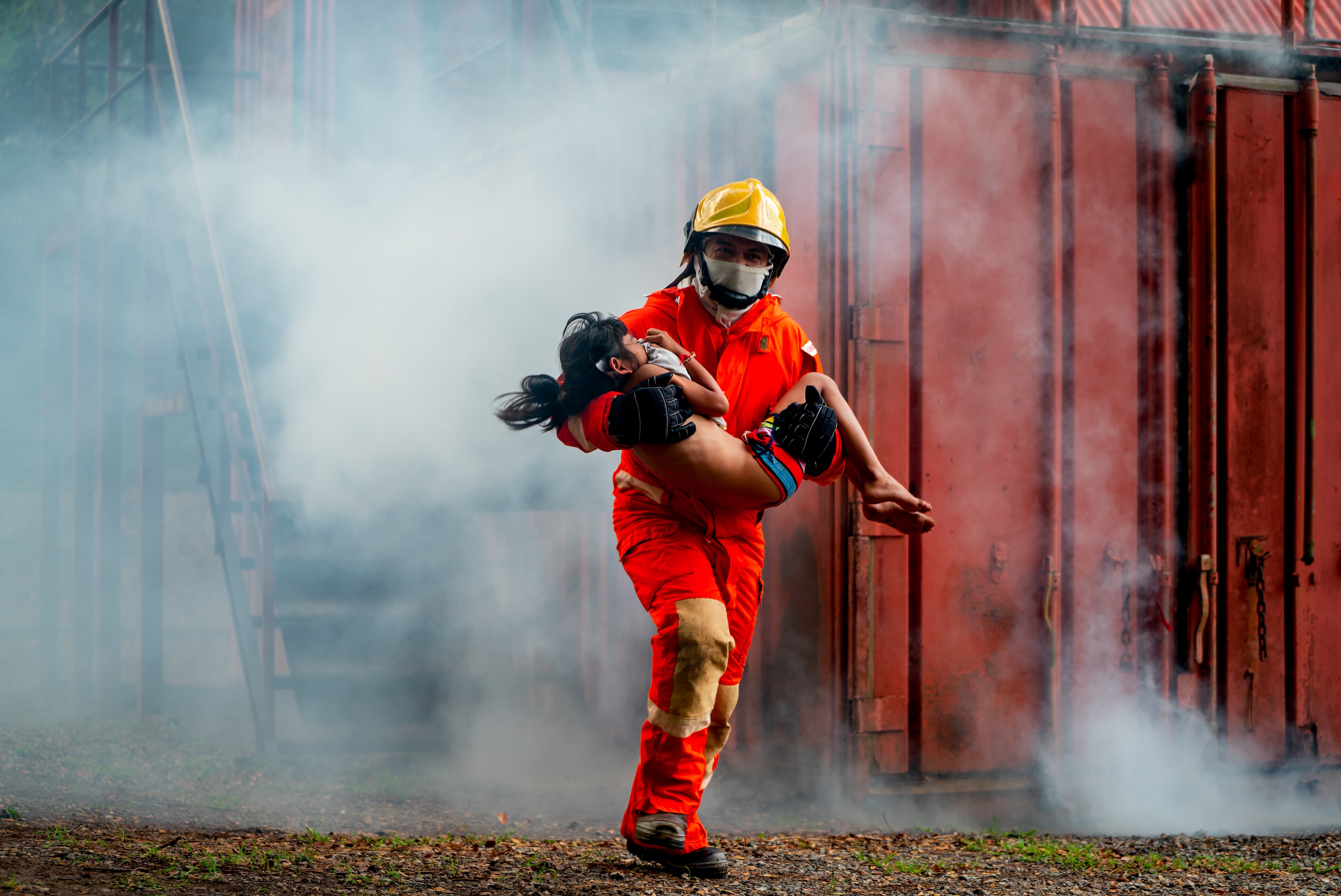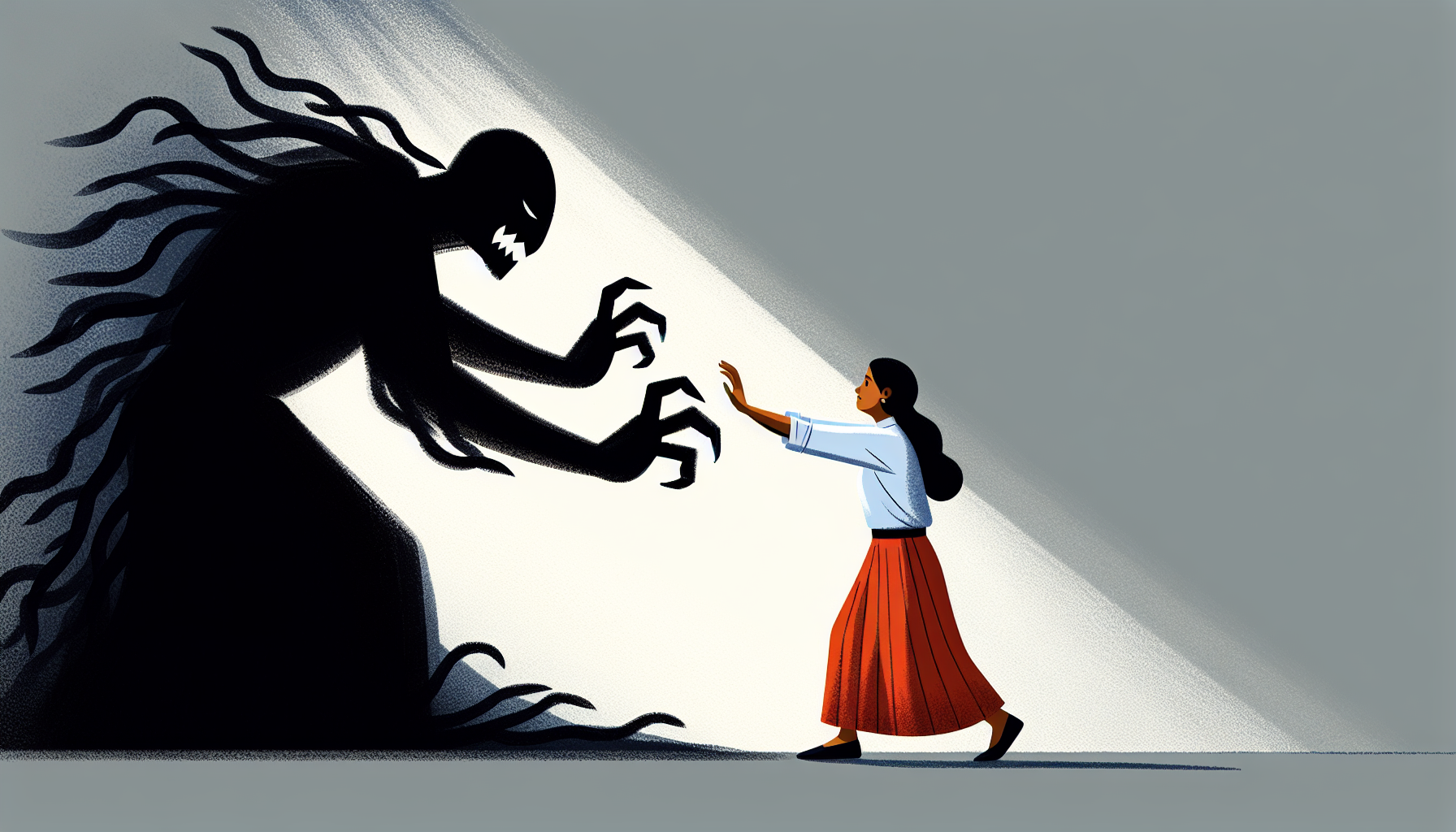Bible Verses on Courage

Every felt like this pawn?
Courage, an essential quality that empowers us to face seemingly insurmountable challenges, requires definition before we accuse ourselves of cowardice. What is courage? What isn’t courage? Why do we need courage? When is its presence most crucial in our lives? And what prompts us to rise with courage in our hearts, especially when we feel weak and vulnerable?
Courage is the cornerstone of human resilience. In the face of adversity or danger, courage urges us to move forward rather than retreat. We need courage when the stakes are high, when fear paralyzes us, and when the consequence of inaction could be devastating.

During our darkest hours courage becomes a beacon of hope. Courage doesn't eliminate fear but instead propels us to act in spite of it. This undeniable yet frequently intangible strength allows us to do what is right, even if the outcome is uncertain.
We may force fear under the rug and charge forward before it can surface again. We may look fear in the face and tell it to go to hell and charge forward. Fear may paralyze us, but we still take the next step because we know that’s what needs to be done.
After an act of courage, we’re never certain what prompted us to act courageously, although in the middle of everything or afterwards, we sense that duty called and we just had to act. We saw an external need, and something deep inside, our deepest values, compelled us to protect our loved ones, or to achieve justice, or just to do the right thing.

When we think of courage, we typically envision grand displays of heroism. However, history and personal anecdotes alike show us that even those perceived as weak or powerless are capable of acts of immense bravery.
Stories of Courage
Consider the story of Rosa Parks, an ordinary woman who, with a quiet yet profound act of defiance, became a symbol of courage. On December 1, 1955, in Montgomery, Alabama, she refused to give up her seat on a segregated bus, catalyzing the civil rights movement in America. At the core of this act was an unyielding sense of justice and human dignity. Parks didn’t wake up that morning saying to herself, “Today I’m going to change history by showing courage.” Parks might have seen herself as just an ordinary individual, but her courageous act reverberated throughout history.
Another poignant example is Malala Yousafzai, a Pakistani girl who, in the face of death threats for advocating education for girls, continued to speak out. Her courage didn't stem from physical strength, but from her unwavering commitment to the rights of every child to education.
Consider the courage of Desmond Doss, a conscientious objector during World War II, who, despite not carrying a weapon, saved dozens of soldiers as a medic during the Battle of Okinawa. His bravery wasn't in using a weapon but in unwavering service to his comrades, even in the face of peril.
The Bible, too, is rich with stories of courageous acts by seemingly ordinary individuals who defied fear because of their faith in a higher purpose.

Take, for instance, David, a young shepherd who faced Goliath, a giant warrior, as described in 1 Samuel 17. His courage came from his trust in God, declaring, "The LORD who rescued me from the paw of the lion...will rescue me from the hand of this Philistine" (1 Samuel 17:37, NIV).
Abigail is yet another example. In 1 Samuel 25, she courageously approached King David with wisdom and diplomacy to prevent bloodshed over her husband Nabal's foolishness. Her courage was driven by her understanding and her desire to protect both her household and David's conscience.
Queen Esther also epitomizes biblical courage. When her people faced extermination, she risked her life by approaching King Xerxes unsummoned, which could have led to her death. "If I perish, I perish," she said (Esther 4:16, NIV), exemplifying selfless bravery for a greater cause.
In the New Testament, we find Peter and John, who after healing a lame man, were arrested and commanded not to preach in the name of Jesus. Despite threats, Peter declared, "We must obey God rather than human beings!" (Acts 5:29, NIV).
Source of Courage
Their motivation was clear: their courage stemmed from a commitment to their mission and trust in God's purpose, risk notwithstanding.
The unifying trait among these individuals is their reliance on God. Even when success wasn't guaranteed, they embraced courage because they believed in something greater than the immediate risk. And they acted, even if they faced the possibility that things might not go the way they wanted. This is a very important point. This trust didn't necessarily guarantee victory in earthly terms, but it aligned them with what was right and necessary, as they understood what God wanted them to do.

Many people who do not trust God show courage in difficult and dangerous situations. Why? Because they believe in something more than their own well-being. We might call it a “higher cause,” but these people would be hard pressed to define that higher cause. So where does this higher cause come from? From God. God created every human being with a conscience. Every person, in every culture, makes use of their own personal conscience every day. We all have the capacity to define right and wrong. The content of right and wrong differs from culture to culture, and from person to person within each culture, but God has given every one of us the facility/ability to recognize when things are right and wrong. So even when people with no relationship to Jesus show courage, they are using their God-given facility to make choices.
Showing courage is not limited
to doing what is right.
Showing courage is not limited to doing what is right. Sometimes a person can show courage by choosing to do something wrong. Peer-pressure exists in every society, and most cultures believe that to go against the grain is wrong. Like a bunch of teenagers stealing a car. It takes courage to do that the first time. Why would a teenager do that? Why face time in prison? Because he or she values the relationships with the chosen group.
Courage, therefore, which is always located within a person’s value system, rises to the surface when a person does what needs to be done in the presence of fear, not in its absence. In the case of someone who loves Jesus, courage is the conscious choice to pursue righteousness despite potential failure or loss.
There are moments when trusting God seems challenging, yet, biblical accounts remind us that He honors our character and our commitment to His principles over worldly success. God's definition of success often contrasts with human measurements. It's centered around fidelity to His values, doing what is right, not necessarily emerging victorious by worldly standards.
For anyone facing a fearful circumstance today, you may find yourself at a crossroads much like those we’ve discussed. Perhaps it feels as if either path could lead to negative consequences, whether or not you choose to act courageously.
Fear is a Normal Human Emotion
It's natural to experience an inner conflict between the alluring safety of inaction and the necessity of confronting a daunting challenge. Fear is natural in our world. Sometimes fear is good, and sometimes bad, but when the Bible tells us to not fear, it’s addressing a normal condition in our souls. We are never told that fear is a sin, unless it is followed by clear disobedience to what God wrote in the Bible. Please note the word “clear.” God knows that fear is normal for us.
When Paul lived and worked in Corinth, the opposition had grown strong enough to drive him into terror. In Acts 18:9, Jesus appeared to him in a night vision and told him, “do not be afraid.” Jesus didn’t tell him to stop sinning. Paul’s fear had risen to the point of needing a direct connection with Jesus telling him to go forward. Paul moved forward. The text does not say that he stopped being afraid, although a direct encounter with Jesus probably removed that fear in that situation.

Peter told the women in 1 Peter 3:6 that they needed to do what is right and not to give way to fear. “Do good, not fearing any intimidation.” He continued in 3:14 with “Do not fear their threats; do not be frightened.” Why would he tell them this? Because we are all afraid of threats, and we have to be constantly reminded that Jesus is still in charge and in control. If he allows us to suffer, He’ll take care of both ends: eventually relieve our suffering and judge those who have caused us to suffer. He suffered for our sins and told us that we would probably suffer for our faith. Read John 15-16. I won’t make it easy for you. Read it yourself. Over and over.
The author of Hebrews sums up his message in 13:6 with “So we say with confidence, ‘The Lord is my helper; I will not be afraid. What can mere mortals do to me?’” Note the words “say” and “confidence.” The verb “say” meaning a continuous action of constantly telling ourselves, “I will not be afraid, I will not be afraid, I will not be afraid.” It doesn’t mean that we aren’t afraid. We show courage in the face of fear by continually reaffirming that we do not want to be afraid. And the word “confidence” is the word “courage.” So, in the face of fear, we continually tell ourselves what we want to be true, that we do not want to be afraid, and we tell ourselves that with courage.
Courage doesn’t remove suffering. It strengthens our souls so we can continue to live with ourselves with a clear conscience.
What Keeps us from being Courageous?
So, what keeps a person from being courageous? Frequently, it's the dread of undesirable outcomes and a perceived incapacity to make a difference.
Then Why are we sometimes Courageous?
Nonetheless, the courage to face these fears usually arises from deep-seated motivations – the things that mean the most to us, what we value the most, whether they be justice, love, duty, or faith. For the person who loves Jesus, courage comes from wanting to become more and more like Him, regardless of the short-term consequences of bucking the crowd or the system.
Even people who do not love Jesus face the consequences of choosing inaction. The regret and self-reproach felt when not standing up for what was right results in a guilty conscience that can darken the soul for years. They look back and wish that they had died rather than run.
Conversely, the satisfaction of knowing that one acted bravely, even without guaranteeing success, implants inner acceptance of oneself. For the follower of Jesus, bravery identifies us with His choice to go through the crucifixion.
Results of Showing Courage
Take heart from the fact that your courage, though it may not deliver the results you hope for, can still inspire others and create change in unforeseen ways. Each act of courage contributes to a larger legacy of strength, influencing those you love the most. Humanity forgets things very quickly, but deeds of heroism live longer in human memories than complacency or cowardice.
How to Handle Fear
If you are in a fear-inducing situation where potential damage looms, pause and clarify, what is the right thing to do? What or who is the most important person in your life? Why do you want to show courage in the situation you are facing? What values do you cherish enough to risk facing your fears?
Courage is not a superpower reserved for an elite few but a divine gift available to anyone willing to face their fears and embrace courage. Don’t compare yourself with anyone else. Look in the mirror and then look at Jesus. You are not the first person to face your given situation. Remember what God has done for the thousands of believers who have gone before you. Read and re-read Hebrews 11.
Understand that courage does not imply recklessness but a discerning heart, willing to meet fear with faith. Ponder the possible outcomes, both of action and inaction, and calculate the deeper impact they might have on you and others. If this is the first time that you’ve faced a serious fearful situation, recognize that it probably won’t be the last time. You won’t forget your decision. Both the wrong action and courage will leave a lasting impression on you. Getting it right this time will built courage into your soul and into your future responses.

Jesus is always right next to you. Choose right over safe. Take the next step. Jesus will use your courage to teach and inspire others, whether you recognize them or not.